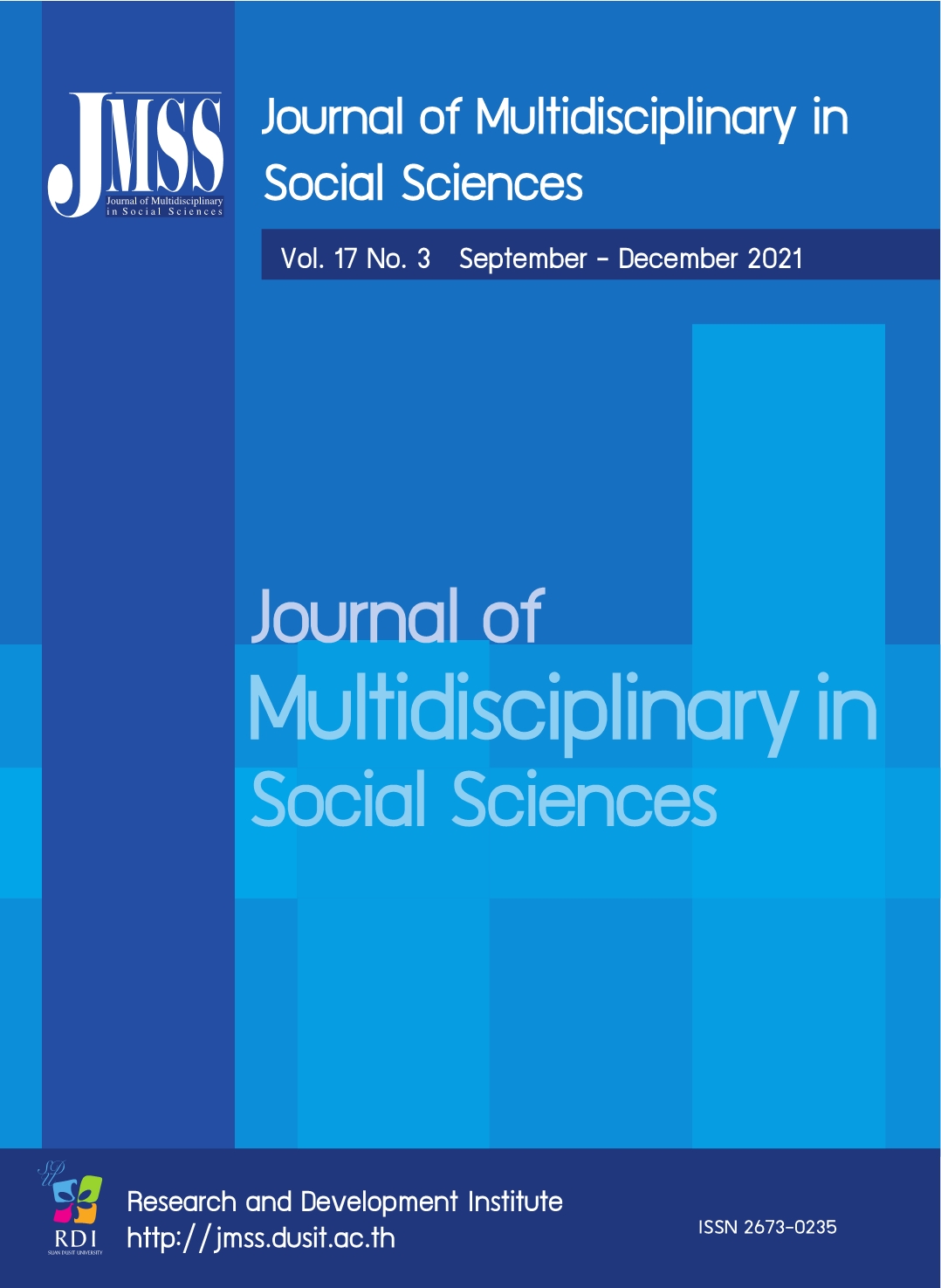The Philosophy of Sufficiency Economy and Ecological Awareness from Literature: A Case Study of “The Good Earth” by Pearl S. Buck and “A Child of the Northeast or Look I-San” by Khamphoon Boonthawee.
Keywords:
Philosophy of sufficiency, Ecological awareness, The good earth, A child of the northeastAbstract
The research aims (1) to investigate, and analysis the methodology or persuasive writing techniques. (2) to analyze the Philosophy of Sufficiency Economy and Ecological Awareness from two stories and (3) to study the attitude of the reader after reading. The primary sources such as the document, novel, theories and in–depth interview-form are employed as the instrument of this research.
The results reveal that both novels can answer the three research objectives as (1) Point of view, theme, plot, characterization, dramatic conflict and setting are also persuaded in both novels and portray the relationship between humans, nature and believe in the cultural society by the following details. (1.1) The point of view of the Good Earth is the first person and third person, but In A Child of the Northeast, the objective or dramatic point of view is the main point. (1.2) Two novels have similar themes in earth, homeland and environment. (1.3) The open plot appears in the two novels. (1.4) The characterizations are round or dynamic and flat or statistic. (1.5) The dramatic conflict appears in the Good Earth as; the physical, the elemental, the social and the psychological conflict, but is found as the natural conflict in A Child of the Northeast. (1.6) The two novels have the same setting; the culture, the geography or natural and the outdoors. (2) The ecological insight is characterized by a quality of wholeness and the author’s ecological awareness and holism suggests a sense of unity such as a farmer in the Asian Region, which depends on the weather, natural resources with hope in their land. Moreover, both novels are concerned with the Philosophy of Sufficiency Economy, especially the teaching of the concept “middle pathway of life”. This philosophy transfer from the actions and visions of the main characters as Wang-Lung and Koon’s father from the beginning until the end of the story. (3) After reading, the students admired the valuable concept of ecological awareness and the philosophy of sufficiency economy and it can be assumed that both novels are good examples for the new generation, particularly in the modern era.
References
Corbett, B. (2013). Comment of the Good Earth. Retrieved July 30, 2021, from http://www.faculty.webster.edu/corbetre/personal/reading/buck-earth.html. (2020/7/5).
FAO Regional Office for Asia and the Pacific. (2013). Outcome Report of the Regional Dialogue on Family Farming: Sustainable Rural Development and Food Security. Bangkok: FAO Regional Office for Asia.
Huntley, S. V. (1974). The Good Earth. Cliffs Notes; Reissue edition. Nebraska Hillegass: Cliffs Notes.
Kepner, S. F. (1987). A Child of the Northeast. Bangkok: Pouyzian Publisher.
Lowder, S. K., Skoet, J., & Singh, S. (2014). What do we really know about the number and distribution of farms and family farms in the world? Background paper for The State of Food and Agriculture. ESA Working Paper No. 14-02. Rome: Agricultural Development Economics Division Food and Agriculture Organization of the United Nations. Schiff, S. (2010). China’s Daughter. Retrieved July 25, 2021, from http://www/nytimes.com /2010/07/04/books/review/Schiff-t.html.
Shanin. (1971). Peasantry: Delineation of a Sociological Concept and a Field of Study. European Journal of Sociology, 2(12), 289-300.
Soda, O. (2003). Philosophy of Agriculture Science: A Japanese Perspective. International Specialized Book Services. Portland: USA.
Spence, J. (2021). New York Review of Books article on Pearl Buck: Journey to the Good Earth. Retrieved May 5, 2021, from http://www.nybooks.com/article2010/10/14/question-pearl-buck
.
Ye, J., & Pan, L. (2016). Concepts and realities of family farming in Asia and the Pacific. International Policy Centre for Inclusive Growth. (IPC-IG) Working Paper No. 139, April, 2016. Brasília-DF: Brazil.
Zhang, Y. L. (2011). Agriculture and Rural Society after ‘Modernization’ in East Asia: Cases of Japan, Korea and Taiwan and Their Historical Implications. Academic Journal of Nanjing Agricultural University, 11(3), 1-8.
Downloads
Published
How to Cite
Issue
Section
License

This work is licensed under a Creative Commons Attribution-NonCommercial-NoDerivatives 4.0 International License.








